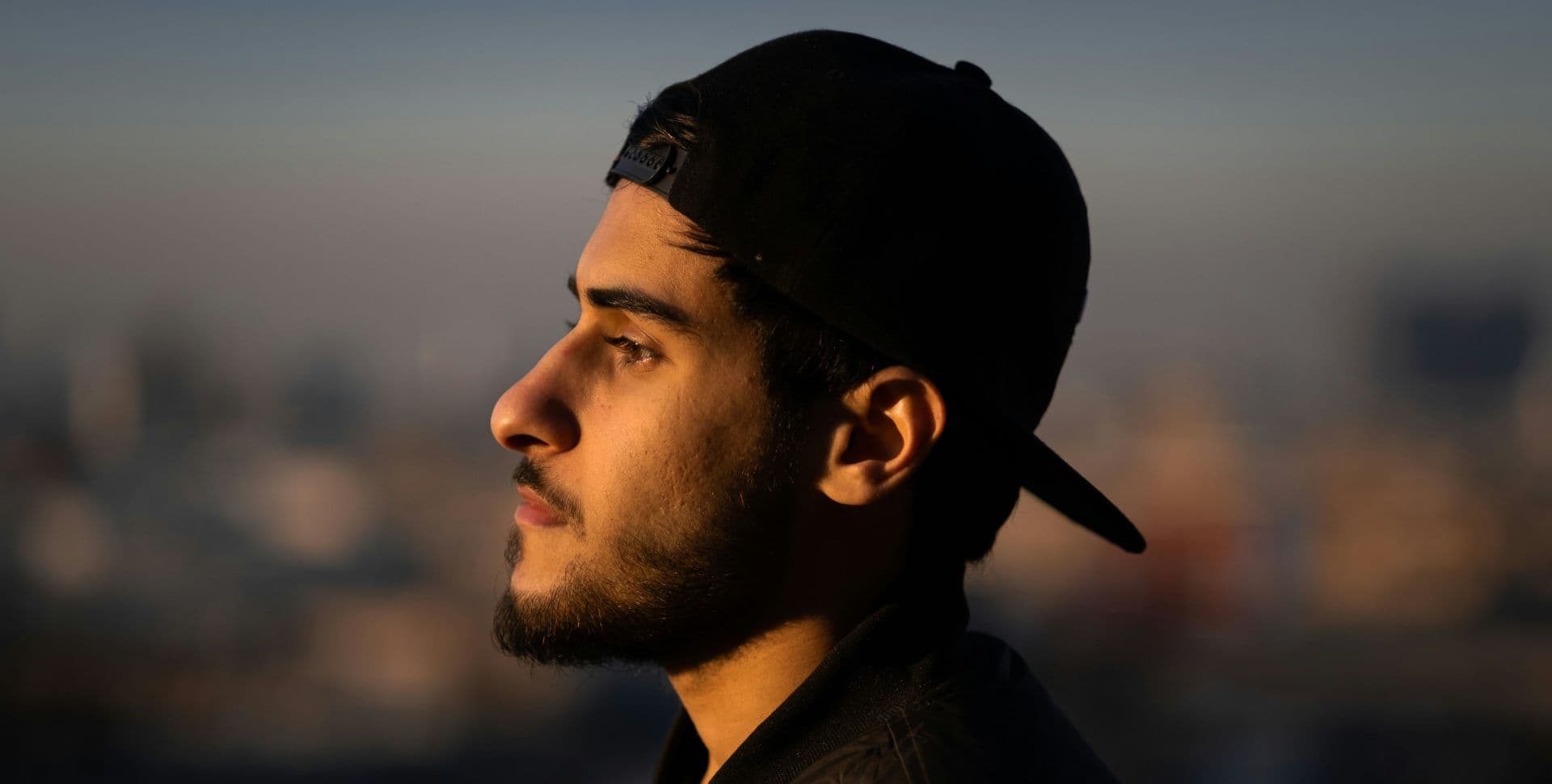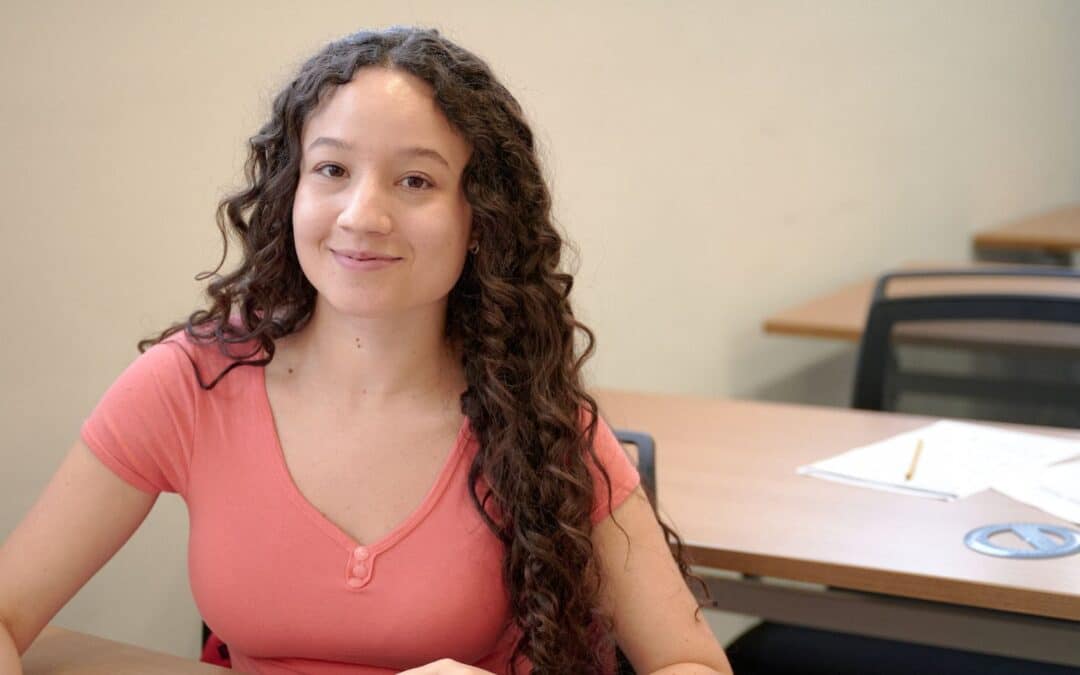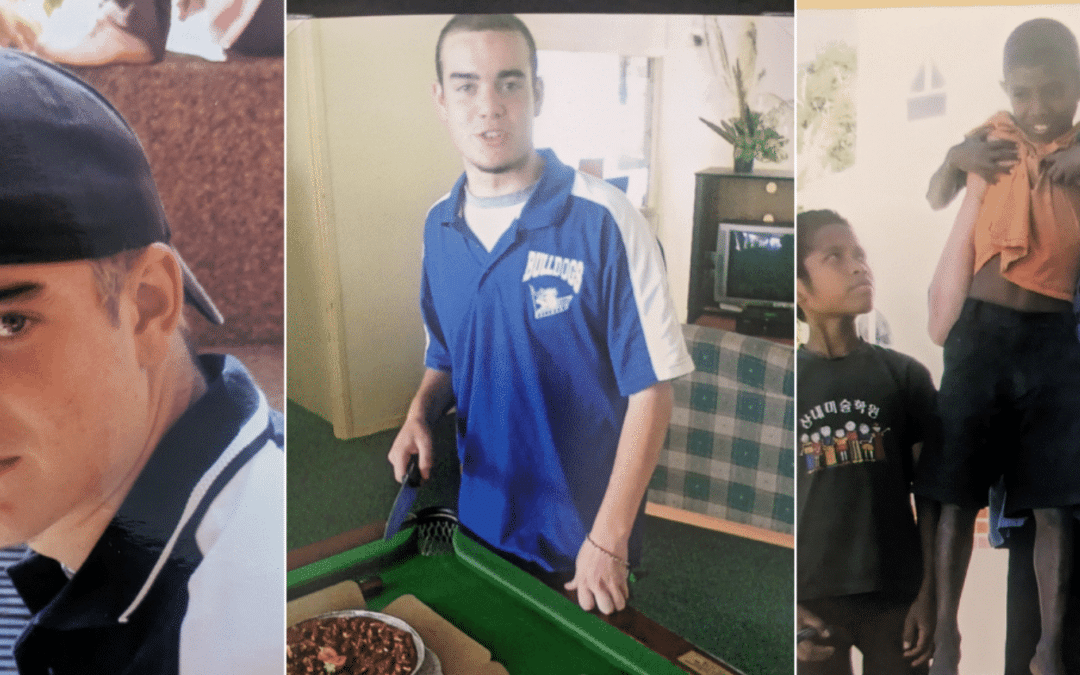Until he was five, Yousef* lived in constant fear that his brothers and sisters would be killed.
“Being in Iraq, terrorists invaded my hometown and I wasn’t able to get away in time,” Yousef remembers.
“Babies and children were burned in front of me. Their mother was taken away, and I still don’t know what happened to her.”
Yousef’s family eventually escaped to Jordan, where they faced discrimination.
“It was so hard for Iraqis there,” he says. “You couldn’t vote, make money or even go to school. All you could do was stay home.”
When Yousef was 14, his family sought refuge in Australia.
“The first month was nice,” he says. “But after that, things got really tough.”
“Learning the language was so hard.”
Things got worse when Yousef’s father became increasingly angry and violent.
The police were called after Yousef’s thirteen-year-old sister was questioned by teachers about bruises on her face. In retaliation, their father kicked her out of the house.
“She called me, saying that Dad had kicked her out and she was on the street,” Yousef recalls.
“I picked her up and took her back home. But when we got there, my father pushed her on the floor. He was really angry.”
Yousef tried to protect his sister from the abuse. During the struggle, his father’s car was damaged and the police were called again.
“They arrested me and took me to juvie [juvenile detention],” says Yousef.
“I didn’t speak English so I couldn’t explain what had been going on at home. It wasn’t easy.”
In juvenile detention, Yousef had a hard time getting his needs met. He couldn’t ask for help or use the phone.
Often, he would wake up screaming from nightmares about his experiences in Iraq.
“During those months, I barely talked to anyone – only my mum and my sister when they visited,” he says.
“I didn’t know what to do, since it was my first time being in jail.”
Yousef’s father didn’t serve any jail time for his actions. Instead, he got an Apprehended Violence Order (AVO).
“I was so sad and worried for my mum and my sisters,” Yousef explains. “They were still out there and they didn’t know anything about living in Australia. They were used to calling me for help.”
He was scared of the other detainees – some of whom had spent years in the facility and were involved with gangs.
“One guy said to me, ‘If the leader tells me to go and bash another guy, I have to do it’. I was very scared,” says Yousef.
“The only support I had was from my caseworker and psychologist, who gave me medication to help me sleep.”
Yousef was thrilled to be released from juvenile detention after three months. Finally, he could see his mother and hug her again.
“But after two weeks, my school started treating me like a criminal,” he says.
“They said, ‘We can’t take you anymore – only for one hour a day, from 10 to 11. It’s for the safety of the other students.’”
Because of his criminal conviction, Yousef was isolated from the other students and had just one teacher.
“They said I should leave and go to another school. But that new school wouldn’t take me because I was 16 and my English wasn’t great.
“They told me to get a job or go to TAFE. It broke me.”
Without access to further education, Yousef worried he’d never achieve his dream of becoming a lawyer.
He also struggled to find a job with an assault charge on his record.
“No one at the shops will say, ‘Come work for us’,” Yousef says.
“I work with Arab guys now. One of them is my cousin – he’s one of the only people who trusts me and thinks I can work.”
Now aged 17, Yousef works as a removalist.
“It’s really hard work; it’ll break your back.”
Yousef is receiving ongoing wellbeing support from his Youth Off The Streets caseworker. He’s learned that he carries a lot of trauma and anger from his time in Iraq.
Fatina Elabd, Team Leader – Engagement and Support, explains that early trauma can affect brain development and shape the people that children become.
“Yousef has triggers that remind him of war, including women screaming and balloons popping,” she says.
“He’s very resilient but, because of this trauma, he can find it difficult to manage his emotions.
“Our caseworkers and youth workers do special training to understand the complexities of trauma and support young people like Yousef.”
Yousef believes that culturally sensitive, trauma-informed practice should be integral to the youth justice system.
“I want people in power to know that not everyone who does something wrong needs to go to jail,” he states.
“What they did might not even be that bad.
“And jail might break them. They get used to being inside. So every time they get out, they get in fights and end up going back again. That’s not good at all.”



